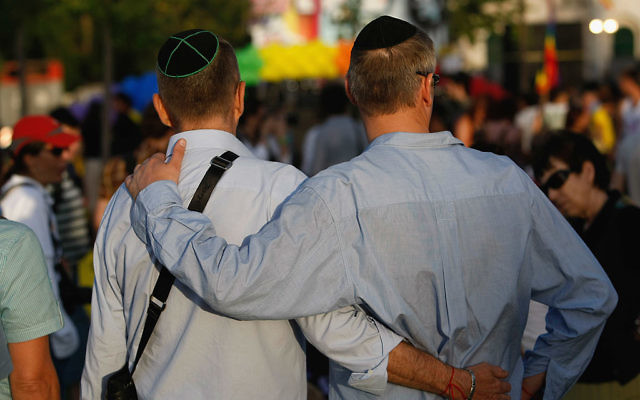“Mom, Dad, there’s something I need to tell you!” – parents dread this sentence.
Over the years, I have counseled many parents, and have been very closely involved with many others as family, friends, and congregants. I do not like generalizations, but I think it would be fair to say that parents generally belong to one of two categories: those who approve of their children’s choices and those who do not.
Cases in the first category follow the same story line. The parents approve of their children’s choices in terms of religion, love life, and profession, to name but a few issues, and there are harmonious and loving relationships between them. Within the category of disapproval, on the other hand, there are as many variations as there are people. Parents would not be happy with their children’s choice of spouse, career, location, beliefs, behavior, or dress code, and their reactions range from pretending to accept their children (while quietly complaining to friends), to outright rejection and even banishment.
Parents complain that their child: is too religious; is not religious enough; wants to serve in the army; does not want to serve in the army; is getting married too young; is not married yet. But it is not that parents will complain no matter what. It is that each one of these parents has set different roles and expectations for their child, and when this does not happen, they feel frustrated. Those expectations could stem from negative or positive experiences (I don’t want my son to serve in the army because I suffer of PTSD; Being a teacher is a safe and fulfilling job for me, and that is what I want for my son.) They could also stem from the desire to live vicariously through our children, having them represent us by doing what we were unable to do, but the frustration of parents is most evident when their children choose a different path within or outside religion, as they feel that their education, or indoctrination, has failed.
This leads me to the question I am often asked by observant, concerned parents, is: my son came out, what do I do?
In one case, a mother spoke with me after her son, in his 20’s, was exposed to her by his younger brothers. She was deeply troubled because she was concerned about the family’s reputation and whether the revelation will affect the marriage prospects of her other children. She was even considering asking him to leave the house permanently, ignoring the great love and respect her son has for her, and the fact that he is a brilliant and creative student (this is not to say that under different circumstances her intentions would be acceptable.)
I told her, as I tell other distraught parents (myself included – on different issues, though) that the first thing to do is not to think about me but about him. Instead of asking why he is doing this to me, where have I gone wrong, or what will my family and friends say, think of what confirming and revealing his identity means for him. He is not doing this to me, and I have not gone wrong, because sexual orientation is not a choice. We do not need to rely on scientific research to confirm that (though this research has been done and it is unshakeable), just on common sense. It is well-known that the orthodox community is less then welcoming to its members who identify as LGBTQ, and even outside the orthodox community, children who do not identify as straight are targeted and bullied by classmates and even, sometimes, by the administration.
Why would my son choose to be singled-out, shunned, and rejected? Why would he be willing to become the target of scathing speeches by rabbis and educators or to be denied an Aliyah? Why would he go against the basic need of humans to belong to the groups closest to them geographically and socially, and choose to belong to a greater, more dispersed group?
I should also be able to put aside my concern about what family and friends will say and focus on my child. I am responsible for his arrival in this world, one which I have imposed on him without his permission, and it is now my duty to make his life as wholesome and fulfilling as possible. The most important thing I can give him is love. Like the marvelous stem cells which can evolve into any type of cell, unconditional love has the power to affect and enhance every aspect of my child’s personality. He might evolve in ways different than I had envisioned, and he well deserves it, because it is his life that he is living, and not mine.
The golden rule, love the other as you love yourself, applies to relationships between parents and children with greater relevance than any other case, because your child is simultaneously you and the other.
When your child comes out to you, put aside beliefs and norms which might obfuscate your view and allow yourself to see him as he is: your child who seeks your unconditional love and support. Your reward for this unconditional love will be seeing your child flourishing and having his or her reciprocal gratitude, respect, and love.
Rabbi Haim Ovadia








Ohr HaChaim Yomi – Emor